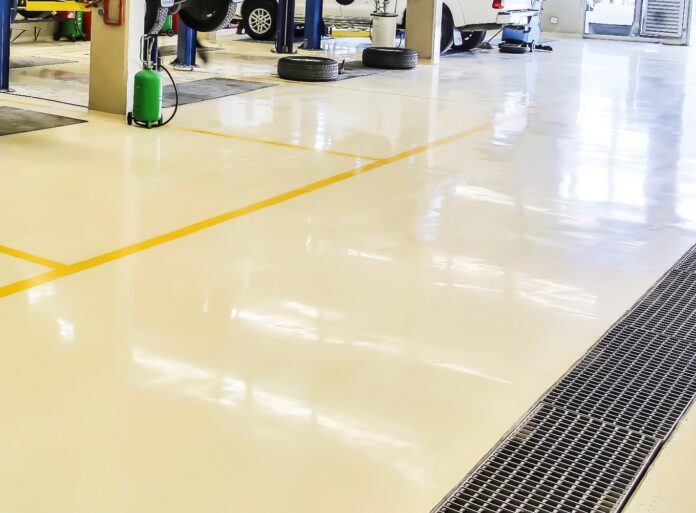Choosing epoxy flooring systems over other forms of flooring is a popular decision because they provide numerous advantages over the alternatives; nevertheless, there are some potential drawbacks to consider. Come with me as I examine both sides of this debate!
They are durable and easy to maintain
Epoxy flooring have grown in popularity due to their durability and ease of maintenance. Additionally, epoxy flooring are stain and spill resistant, making them excellent for high-traffic areas. Because they are low maintenance, they require only occasional cleaning and mopping. Additionally, epoxy flooring are resistant to chipping, scratching, and fading over time.
They Are An Economical Flooring Choice
Due to its durability and ease of maintenance, epoxy flooring are a popular choice for home and commercial settings. However, were you aware that epoxy floors are also a cost-effective option for flooring? Epoxy floors are a more cost-effective solution than other forms of flooring, both in terms of initial installation and ongoing upkeep.
You Can Customize Epoxy Floors To Suit Your Taste
Typically, a garage floor is nothing more than a concrete slab, which may be quite unappealing. Epoxy floors, on the other hand, enable homeowners to customize their floors to their liking. Epoxy floors are available in a variety of colors and styles, allowing you to create a look that is uniquely you. Additionally, you can customize your epoxy flooring with unusual effects such as glow-in-the-dark pigments or reflecting glitter.
Can Withstand Extreme Weather Conditions
One of the primary advantages of epoxy floors is their resistance to adverse weather conditions. This is because epoxy flooring are constructed of a tough, synthetic material that is resistant to extremes of heat and cold. This makes epoxy floors a good solution for both indoor and outdoor areas. If you’re looking for a durable and long-lasting flooring solution for your garage or patio, epoxy floors may be the answer.
While epoxy flooring have a number of advantages, they do have some possible disadvantages. Consider some of the disadvantages of epoxy floors.
Moist Environments Pose A Challenge To Adhesion
Adhesion in damp conditions is a significant issue with epoxy floors. Epoxy is a hardening resin that relies on a chemical reaction to cure. If the floors are exposed to an excessive amount of moisture, this reaction may be prevented, resulting in the epoxy being soft and flexible. As a result, caution is required when using epoxy in places that may be exposed to water or have a high level of humidity.
Can Be Slippery
One of the primary disadvantages is that epoxy flooring can be quite slippery. These flooring can be dangerous, especially when wet or when oil or grease is spilled. This is critical to keep in mind while selecting epoxy floors for your house or company. There are several strategies to reduce this risk, such adding a nonslip component to the epoxy or selecting a textured finish.
Long Curing Time
One disadvantage of epoxy floors is their lengthy curing period. Depending on the product, it may take between 24 and 48 hours for the epoxy to completely cure. This can be an issue if you require immediate usage of the floor and do not have time to wait for the epoxy to dry. Additionally, if the temperature is too low or too high, the curing process may be slowed down even further.
Epoxy Flooring Requires Extensive Floor Preparation
Another disadvantage of epoxy floors is that substantial floor preparation is required. This includes cleaning and degreasing the concrete base, as well as patching any cracks. Without these preparatory steps, the epoxy flooring may not adhere correctly to the surface and eventually flake or chip.
While the additional effort is well worth it for the stunning and durable surface of epoxy flooring, this preparation phase adds to the workload. It complicates the process of installing epoxy floors.
To maximize the value of your epoxy floor, hire an experienced contractor to install it. They will be able to assist you in selecting the appropriate sort of epoxy for your application and will also verify that the installation is completed correctly.
Epoxy flooring, in general, offer a number of benefits, including durability, ease of maintenance, and personalization options. However, there are some possible disadvantages, including a lengthy curing period and the likelihood of slip risks. Epoxy floors are a good alternative if you’re seeking for a cost-effective and durable flooring option. Consider the disadvantages, though, before making a final decision.











